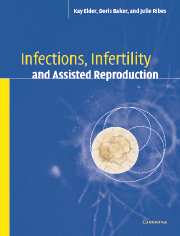6 - Parasitology
from Part I - Overview of microbiology
Published online by Cambridge University Press: 29 October 2009
Summary
Introduction
Although all species of microorganisms discussed so far can be described as ‘parasites’, the term traditionally refers to parasitic protozoa, helminths (worms) and arthropods.
Parasites are divided into two classes.
Unicellular: protozoans (Kingdom Protista); four phyla (see Table 6.1a).
Multicellular: helminths – flatworms (flukes and tapeworms) and roundworms
Arthropods – have chitinous exoskeletons with jointed appendages (lice, mites, ticks, etc.).
Classification of parasites is based upon taxonomic groups and the body site infected. Diagnosis of parasite infections may be made by fecal examination for ova and parasites, antigen detection systems, serologic tests and examination of thick and thin blood films. Molecular techniques for the detection and identification of parasitic infections are also under development.
Terminology
Parasite life cycles and their interrelationship with hosts are described by specific terms:
host: an organism that harbours or nourishes another parasite,
definitive host: harbours the adult or sexual form of the parasite,
intermediate host: harbours larval or asexual stages of the parasite,
reservoir host: a non-human host that can maintain the infection in nature in the absence of human hosts.
parasitism: the parasite benefits at the expense of the host.
endoparasite: lives inside the host, e.g. intestinal parasites, cause infection,
ectoparasite: lives on the surface of the host, e.g. pubic lice, cause infestation.
symbiosis: close association of two species that are dependent on one another.
- Type
- Chapter
- Information
- Infections, Infertility, and Assisted Reproduction , pp. 131 - 174Publisher: Cambridge University PressPrint publication year: 2004



